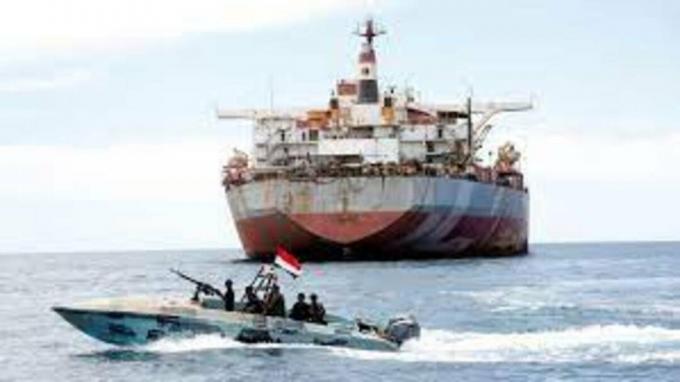Docked eight kilometers off the coast of Yemen for more than 30 years, a decaying supertanker with a million barrels of oil is finally being unloaded by a United Nations-led mission (UN).
The 47-year-old vessel, called the FSO Safer, represents a environmental threat, and specialists work to remove the Petroleum raw without causing an ecological disaster.
see more
Workers will receive R$ 12.7 billion in FGTS distribution; look…
IEL opens more than 1,400 internship vacancies with grants of up to R$ 2,800;…
The operation is estimated at US$ 141 million (about R$ 660 million) and has the experience of SMIT, the contractor that dislodged the ship Ever Given in the Suez Canal in 2021.
Twenty-three UN member states and private sector contributors fund the mission. The team is pumping between 4,000 and 5,000 barrels of oil per hour and has already transferred more than 120,000 barrels to the replacement vessel.
The complete transfer should take 19 days. The oil on board is worth around US$80 million (about R$377 million), and the question of who gets it remains controversial.
The tanker retained four times the amount of oil spilled in 1989, and a possible leak would be catastrophic.
An extra amount of US$ 22 million (about R$ 103 million) is urgently needed to complete the work.
The FSO Safer has been abandoned in the Red Sea since 2015, and the UN warns that the vessel's age and condition pose risks.
The Red Sea is a strategic waterway for global trade, and a leak would close Yemeni ports, impacting 17 million people amid the humanitarian crisis caused by civil war and Saudi military attacks to the country.
The download operation is complex and risky. The first step was to stabilize the ship to prevent it from collapsing. Floating barriers were used to contain possible leaks.

(Image: Disclosure)
The second step is to transfer the oil to the replacement vessel. While the transfer prevents a catastrophic spill, the tanker still offers a threat due to the sticky residue of oil inside the tank.
A possible spill would also damage fish stocks for 25 years, affecting up to 200,000 jobs.
Catastrophic public health ramifications would include heightened dangers of hospitalization for illnesses cardiovascular or respiratory problems, as well as psychiatric and neurological problems in possible people affected.
The oil tanker issue is a dispute between Houthi rebels and the internationally recognized government in Yemen's civil conflict.
The oil belongs to the Yemeni state company SEPOC, but the situation is complex due to Safer's location in an area controlled by the Houthis. Discussions to determine ownership of the oil are ongoing.
While the UN resolves half of the issue with the discharge, it is still necessary to understand the oil situation. Keeping it near a conflict zone poses great danger.
The removal of this product is a hope for Yemen, as many see the tanker as a threat. The operation is expected to gain time to discussions political and legal frameworks before starting the decision process on what to do with the oil.
At Trezeme Digital, we understand the importance of effective communication. We know that every word matters, so we strive to deliver content that is relevant, engaging and personalized to meet your needs.